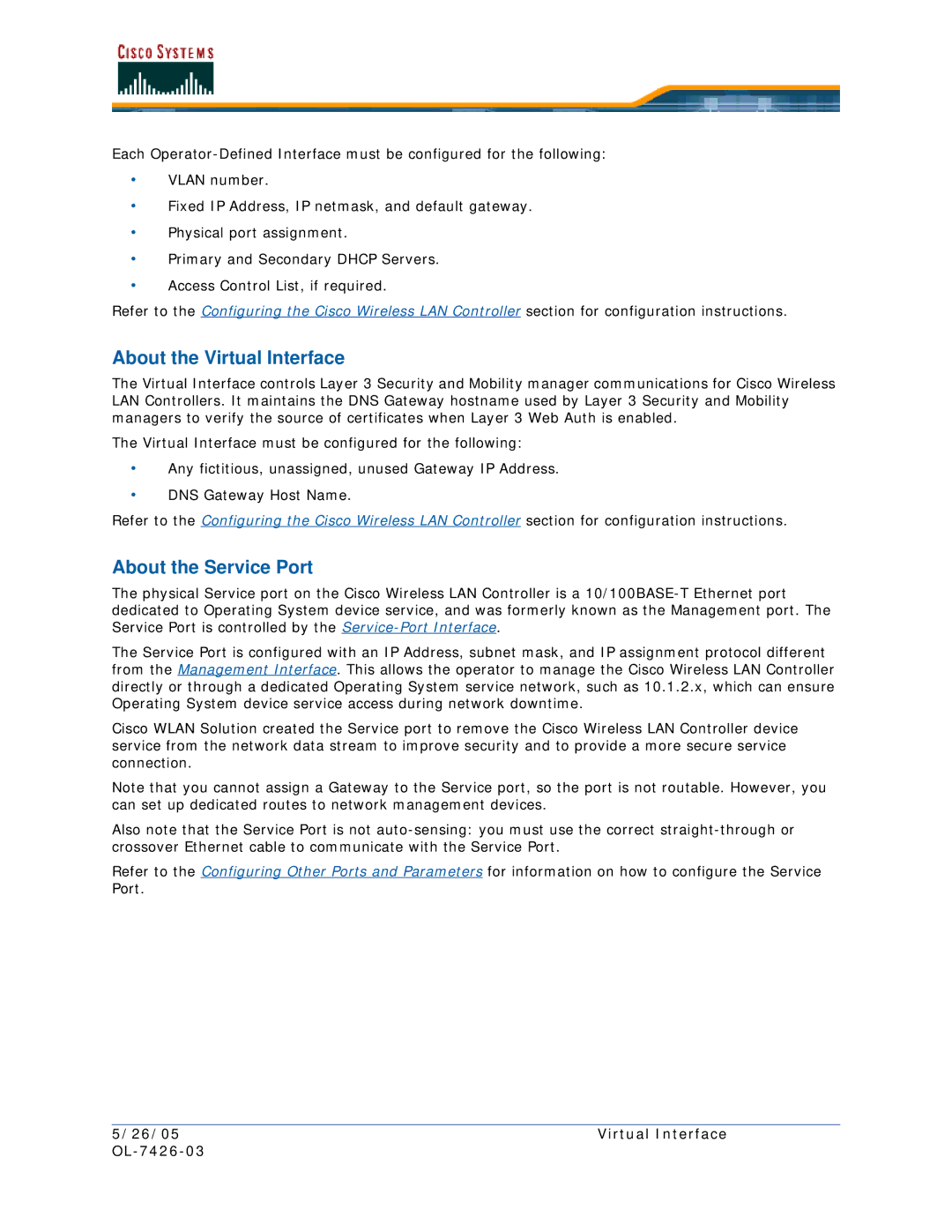
Each
•VLAN number.
•Fixed IP Address, IP netmask, and default gateway.
•Physical port assignment.
•Primary and Secondary DHCP Servers.
•Access Control List, if required.
Refer to the Configuring the Cisco Wireless LAN Controller section for configuration instructions.
About the Virtual Interface
The Virtual Interface controls Layer 3 Security and Mobility manager communications for Cisco Wireless LAN Controllers. It maintains the DNS Gateway hostname used by Layer 3 Security and Mobility managers to verify the source of certificates when Layer 3 Web Auth is enabled.
The Virtual Interface must be configured for the following:
•Any fictitious, unassigned, unused Gateway IP Address.
•DNS Gateway Host Name.
Refer to the Configuring the Cisco Wireless LAN Controller section for configuration instructions.
About the Service Port
The physical Service port on the Cisco Wireless LAN Controller is a
The Service Port is configured with an IP Address, subnet mask, and IP assignment protocol different from the Management Interface. This allows the operator to manage the Cisco Wireless LAN Controller directly or through a dedicated Operating System service network, such as 10.1.2.x, which can ensure Operating System device service access during network downtime.
Cisco WLAN Solution created the Service port to remove the Cisco Wireless LAN Controller device service from the network data stream to improve security and to provide a more secure service connection.
Note that you cannot assign a Gateway to the Service port, so the port is not routable. However, you can set up dedicated routes to network management devices.
Also note that the Service Port is not
Refer to the Configuring Other Ports and Parameters for information on how to configure the Service Port.
5/26/05 | Virtual Interface |
|
|
